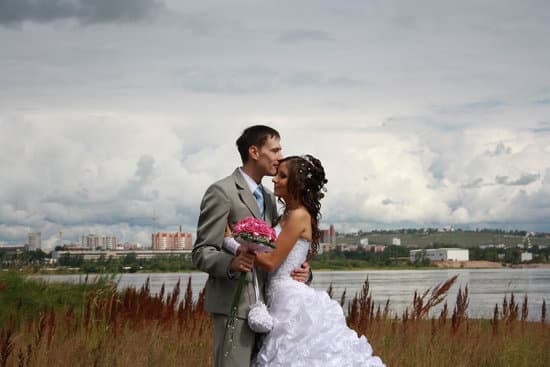Do I need to be ordained to perform a wedding? Many individuals may find themselves pondering this question when faced with the opportunity to officiate a wedding ceremony.
The role of a wedding officiant holds significant importance in uniting couples in marriage, and understanding the legal requirements for performing weddings is crucial. This article aims to clarify the concept of ordination and its necessity for officiating weddings, shedding light on the process of becoming ordained and exploring alternative options for those interested in conducting marriage ceremonies.
Officiating a wedding is a meaningful task that involves guiding couples through one of the most significant moments of their lives. A wedding officiant is responsible for overseeing the marriage ceremony, ensuring that all legal aspects are in order, and creating a personalized and memorable experience for the couple and their guests. The ability to conduct weddings brings joy and fulfillment to both the couple getting married and the individual presiding over the ceremony.
In order to legally perform marriages, many states require individuals to be ordained or obtain a specific authorization to officiate weddings. Being ordained typically involves going through a religious institution or organization that grants you the authority to conduct religious ceremonies, including marriages.
However, some states may have different requirements or allow non-ordained individuals to serve as officiants under designated laws. Understanding these legalities is essential for anyone considering officiating weddings, ensuring that they comply with state regulations while fulfilling this important role.
What Does It Mean to Be Ordained
Being ordained to perform a wedding is not just a simple formality; it carries significant meaning and responsibility. Ordination is the process by which individuals are officially recognized and authorized to perform religious ceremonies, including weddings. It signifies that the person has been granted the authority to officiate sacred rituals according to the rules and beliefs of a particular religious institution or organization.
To become ordained, individuals typically need to meet certain requirements set forth by the ordaining body. These requirements can vary depending on the religious denomination or organization. In most cases, aspiring officiants may need to undergo specific training or education, demonstrate a commitment to their faith, and adhere to the ethical standards and practices outlined by their religious tradition. Some organizations may also require candidates to pass an examination or receive approval from a clergy member before being ordained.
- Training or educational requirements
- Commitment to faith and ethical standards
- Examinations or approvals from clergy members
In addition to the spiritual aspect of ordination, there are also legal considerations when it comes to officiating weddings. While ordination is generally required for performing religious ceremonies, some states may allow individuals who have obtained temporary officiant licenses or who are recognized as designated officiants under specific laws to legally perform weddings. It is essential for those interested in officiating weddings to familiarize themselves with the legal requirements in their state regarding who can solemnize marriages.
- Check state laws regarding wedding officiation
- Obtain necessary licenses or certifications
- Ensure compliance with legal guidelines
Ultimately, being ordained is a meaningful and fulfilling experience for those who feel called to officiate weddings. It allows individuals to play a crucial role in uniting couples in marriage and celebrating love in a sacred way. Whether one chooses to pursue ordination through a traditional religious institution or explore alternative options for becoming an officiant, the act of solemnizing marriages can be both spiritually rewarding and personally enriching.
Do I Need to Be Ordained to Perform a Wedding
Performing a wedding ceremony is a significant responsibility that requires careful consideration and preparation. One of the common questions that individuals often ask is, “Do I need to be ordained to perform a wedding?” The answer to this question may vary depending on the state in which the wedding is taking place. In many states, being ordained is a requirement for officiating weddings, while others have different regulations in place.
Legality of Officiating Weddings
In most states, ordained ministers, priests, rabbis, or other religious leaders are automatically granted the authority to officiate weddings. However, some states also allow individuals who have obtained ordination through online organizations or by other means to legally perform weddings. It’s essential to research and understand the specific requirements in the state where the wedding will take place to ensure that the ceremony is legally binding.
Requirements for Officiating Weddings
The requirements for officiating weddings can vary widely from one state to another. Some states may require ordained ministers to register with a county clerk’s office before performing ceremonies, while others may have no registration or licensing requirements at all. It’s crucial for individuals considering officiating weddings to familiarize themselves with the laws and regulations of the state in which they plan to conduct the ceremony.
Considerations for Non-Ordained Officiants
For individuals who are not ordained but wish to officiate a wedding, some states offer alternative options. Temporary officiant licenses may be available for specific ceremonies, allowing non-ordained individuals to legally perform marriages under certain conditions.
Additionally, designated officiant laws in some states permit couples to choose someone special to them who may not be ordained to oversee their wedding ceremony. These alternatives provide flexibility for couples who want a friend or family member without ordination credentials to play a significant role in their special day.
How to Become Ordained
Becoming ordained to perform weddings is a process that varies depending on the organization or religious institution you choose to affiliate with. One of the most common ways to become ordained is through online ministries that offer ordination to individuals who wish to officiate weddings.
These online platforms typically require you to fill out a form, agree to their terms and conditions, and pay a nominal fee. Once these steps are completed, you are officially ordained and can legally perform wedding ceremonies in many states.
Another option for becoming ordained is through traditional religious institutions such as churches, synagogues, or mosques. In order to become ordained through a religious organization, you may need to meet specific requirements set by that institution. These requirements could include attending classes, undergoing training, or being an active member of the congregation for a certain period of time. However, being ordained through a religious institution can provide additional credibility and legitimacy when officiating weddings.
It is important to note that the requirements for becoming ordained and performing weddings vary by state. Some states may allow individuals who are not ordained to officiate weddings under certain circumstances, such as through temporary officiant licenses or designated officiant laws. Before deciding on how to become ordained, it is essential to research the laws and regulations in your specific state regarding who can legally perform wedding ceremonies.
| Becoming Ordained | Process Overview |
|---|---|
| Online Ministries | Fill out form, agree to terms, pay fee |
| Traditional Religious Institutions | Meet specific requirements set by the institution |
Benefits of Being Ordained
Being ordained to perform weddings comes with a variety of benefits and opportunities for individuals who are interested in officiating ceremonies. One of the key benefits is the legal recognition it provides, allowing you to solemnize marriages in a professional capacity.
In most states, being ordained is a requirement to legally perform weddings, ensuring that the marriage is valid and recognized by the government. This not only gives you the authority to officiate weddings but also adds credibility to your services as a wedding officiant.
Moreover, being ordained opens up a wider range of opportunities for individuals looking to perform various ceremonies beyond just weddings. As an ordained officiant, you may have the chance to preside over other significant life events such as vow renewals, commitment ceremonies, naming ceremonies, and more. This allows you to connect with people during important milestones in their lives and offer your services as a celebrant or minister for diverse occasions.
Furthermore, being ordained can be personally fulfilling for those who have a passion for bringing people together in love and unity through ceremony. It allows you to play a meaningful role in creating memorable and personalized experiences for couples and their loved ones on their special day. By having the authority to legally marry couples, you become an integral part of their journey as they start a new chapter in their lives together.
| Benefits of Being Ordained | Performing Weddings and Other Ceremonies |
|---|---|
| Legal recognition | Authority to solemnize marriages |
| Opportunities beyond weddings | Presiding over various ceremonies |
| Personal fulfillment | Crafting meaningful experiences for couples |
Alternatives to Ordination
When considering officiating a wedding, many individuals wonder if they need to be ordained to perform the ceremony. While ordination is a common route for becoming a wedding officiant, there are alternative options available that allow individuals to legally officiate weddings without formal ordination. Here are some alternative options to consider:
- Temporary Officiant Licenses: Some states offer temporary officiant licenses that allow individuals to officiate a specific wedding ceremony without the need for ordination. These licenses are typically easy to obtain and may require completing a simple application process.
- Designated Officiant Laws: In certain states, designated officiant laws permit non-ordained individuals to legally solemnize marriages. These laws vary by state and may have specific requirements, such as registering with the local county clerk or obtaining a special designation.
While becoming ordained is often the most straightforward way to officiate weddings, exploring these alternative options can provide flexibility for those who do not wish to pursue ordination. It’s essential to research the specific laws and regulations in your state regarding who can legally perform marriage ceremonies and consider which option best suits your preferences and needs.
- Research your state’s laws on marriage officiation
- Consider applying for a temporary officiant license if available in your state
- Explore designated officiant laws and any requirements they entail
Ultimately, whether you choose to become ordained or explore alternative options, it’s crucial to ensure that you are complying with all legal requirements when officiating a wedding. By understanding the different paths available for becoming a wedding officiant, you can make an informed decision that aligns with your beliefs and values while fulfilling the important role of joining couples in matrimony.
Tips for Officiating Weddings
So, you’ve decided to take on the important role of officiating a wedding for the first time. Whether it’s for a close friend, family member, or acquaintance, being asked to preside over someone’s special day is an honor that comes with its share of responsibilities.
While the thought of overseeing such a significant event may seem overwhelming at first, with some careful planning and preparation, you can ensure that the ceremony runs smoothly and is memorable for all the right reasons.
Understand the Legal Requirements
Before diving into officiating a wedding, it is crucial to familiarize yourself with the legal requirements in the state where the marriage will take place. While some states do not require ordination for individuals to perform weddings, others have specific rules and regulations regarding who can legally preside over a marriage ceremony. It’s essential to check the local laws and regulations to avoid any issues that could arise if you are not properly authorized to officiate weddings.
Communicate With the Couple
One of the most important aspects of officiating a wedding is establishing clear communication with the couple getting married. Sit down with them to discuss their vision for the ceremony, including any special rituals or traditions they want to incorporate.
Make sure to understand their expectations and preferences when it comes to the tone, length, and content of the ceremony. By collaborating closely with the couple and respecting their wishes, you can create a personalized and meaningful experience for everyone involved.
Prepare Your Script
Drafting a script for the wedding ceremony is essential in ensuring that everything runs smoothly on the big day. Work closely with the couple to create a script that reflects their values, beliefs, and love story. Include readings, vows, ring exchanges, and any other elements they want to incorporate into the ceremony.
Practice delivering your lines beforehand so that you feel confident and prepared when it comes time to officiate. Remember that while it’s essential to follow a script, allowing for some flexibility and improvisation can add warmth and authenticity to your delivery.
Conclusion
In conclusion, the decision of whether you need to be ordained to perform a wedding ultimately depends on the laws of the state where the ceremony will take place. While some states require officiants to be ordained, others allow individuals to officiate weddings through temporary officiant licenses or designated officiant laws.
It is essential to do thorough research and familiarize yourself with the legal requirements in your specific location before taking on the responsibility of officiating a wedding to ensure that everything is conducted within the bounds of the law.
For those who are interested in becoming ordained, there are various routes available, including online ordination through religious organizations or independent ordination agencies. Becoming ordained not only allows you to legally officiate weddings but also opens up opportunities for performing other ceremonies and rituals for friends, family members, and community members. The process of becoming ordained is relatively straightforward and can provide a meaningful way to participate in one of life’s most significant milestones.
Regardless of whether you choose to pursue ordination or explore alternative options for officiating weddings, it is crucial to approach the role with professionalism, respect, and sensitivity. Officiating a wedding is a privilege that carries great significance for the couple involved, and as an officiant, you play a crucial role in creating a memorable and meaningful ceremony.
By taking the time to prepare adequately, understand your responsibilities, and honor the wishes of the couple, you can help create a special and unforgettable event that celebrates their love and commitment.
Frequently Asked Questions
Can You Marry Someone if You Are Not Ordained?
In most states, including New York, you do not need to be ordained in order to marry someone. However, you do need to follow the legal requirements set by the state where the marriage takes place.
Who Can Perform a Spiritual Wedding Ceremony?
A spiritual wedding ceremony can be performed by individuals who are recognized as being qualified to officiate weddings within a specific faith or spiritual tradition. This could include ministers, priests, rabbis, or other religious leaders.
Who Can Legally Marry a Couple in NY?
In New York, individuals who can legally marry a couple include ordained ministers of any religion, mayors, city clerks, justices of the Supreme Court, judges of the Court of Appeals and judges of the federal district court. Each person authorized has different requirements they must meet in order to officiate a wedding in New York State.

I have been involved in marriages for over 20 years helping couples and singles understand more about them.





